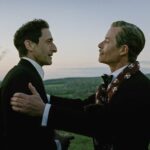History As a Hobby
History does not repeat itself, but Mark Twain allegedly said it does rhyme. Though there are many views of history and different types of historians (from Marxists to classicists, to critical, to military), it is quite clear that certain elements do get a replay of a sort. I recently read an essay, A Much Repeated Repetition, by the great Catholic writer and lay theologian G.K. Chesterton, in which he explained the same phenomenon. Chesterton argued that history is the one thing in the world that, mercifully, does not repeat itself like mathematical formulas or the laws of physics. This is correct, up to a point, but as Chesterton also noted, human experience is oftentimes similar. Different times and circumstances might mean that similar challenges and personalities arise at other times. As Chesterton wrote, “there is one unpardonable sin that [history] has never committed. It has never repeated itself. It has never asked to agonize once more with precisely the same agony; it has never asked us to look again upon the same living and hateful face.”
Why should we study history, then? For the simple fact that since it rhymes, it provides us with a deeper understanding of ourselves and the world we live in. Everything has a story, and history is the total of our common human story. Having as broad a historical knowledge as possible allows us to gain a greater appreciation of things and, in many cases, to be able to discern truth and what is good and beautiful. A nation’s history, it has been said, is like a person’s memory. If it is forgotten or erased, that nation will soon lose a sense of itself. Cultivating cultural memory is, as the conservative writer Rod Dreher notes, important to resist fashion lies and to preserve civilization. Studying history also develops a sense of humility since it allows us to recognize that this world was not our generation’s only, nor will it be ours forever. It should teach us that as other generations became slaves to fashion and moods, so do we have our own moods and insanities which will be incomprehensible to our descendants. It lets us understand that, mercifully, nothing but the moral law of God lasts forever.
In addition, I have long believed that without deep historical knowledge or investigation, one cannot properly opine about long-term political trends and international politics. For instance, in my case, I would be very hesitant to speak of the geopolitics of Africa or India except in a very broad sense since I know little of the precedents involved. A lot of the things that we see and hear on the news are the consequences and manifestations of things begun long ago. For example, one could not have a proper understanding of Communist China’s behavior if one did not study the century of humiliation, the Chinese Civil War, and the rise of the Communists long before Xi Jinping was anywhere near the pinnacle of power. Additionally, a lot of the problems in the Middle East today and in Eastern Europe can be traced back to the cataclysm that was the First World War. Winston Churchill once remarked that the key to statecraft is to study history, where we can find all the secrets of statecraft.
Studying history, one can see certain things, like the danger of too much power concentrated in few hands, how cruel Pagan civilization was and the importance of the Catholic Church in building Western Civilization, the importance of military preparedness to maintain peace, how crime is stopped by adequate policing and training, how the American geopolitical order is far superior to any other potential international system, among many other things. History can guide logic and reason; it is useful for geopolitics and faith. As an example, when I began my conversion to Christianity, I spent a long time wondering what true Christianity was. Logic would tell us that if Christianity is true, it cannot be all of Christianity since many denominations have conflicting doctrines amongst themselves. So, the question became what religion was taught by Christ Himself, what did He give to the apostles, and what did they, for their part, teach themselves? When one enters deeply into Christian history, one finds that, in the words of Joe Heschmeyer, the early Church was the Catholic Church. And so, partly thanks to an interest in history, did I find my way home to Rome.
In addition, though history does repeat somewhat and can guide us, it is not infallible. It is important to avoid the grave errors of Marxists, Leftists, and others. As Raymond Ibrahim explains, history is not an impersonal autonomous force with its own will. What individuals do, matters. What people and leaders do does, in fact, matter and can change the course of things. Historical circumstances can perhaps best be viewed as the raw material that statesmen and political actors find, and with that, they can do plenty if they have the skills, power, and luck. Of course, there are always limits. However, history shows that a single figure can alter things, as demonstrated by Alexander the Great, Julius Caesar, Constantine, Columbus, and the greatest One who ever lived, Jesus Christ. The fact that we remember these figures centuries after their lives, and in the case of Christ, that His Church will never die, shows this.
As Chesterton notes in his essay, things never really come out the same way twice. As such, though the world is large and strange, students of history can note that God guides it in mysterious ways and that everyone has a role to play. As Shakespeare wrote “All the world’s a stage, and all the men and women merely players. They have their exits and their entrances, and one man in his time plays many parts.”
Regardless, one of the lessons of history is that all things pass. Since that is so, statecraft should be guided by long-term views, not just momentary concerns and passions. How to do that is one of the central questions of statecraft, and it is up to each individual politician and those in charge of the affairs of the state to determine how to work for the common good and differentiate between what is important and long-lasting and what is not. In short, reading and studying history, one finds adventure, honor, treason, wisdom, folly, adventure, and inspiration. It reminds us that things can be worse and that they can be better. In the end, studying history can allow us to be more responsible in government and, perhaps, even in our own personal lives. I recommend that everyone read as much history as possible. That way, we can have a longer view of things.




